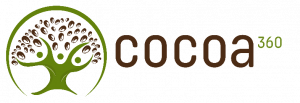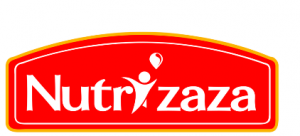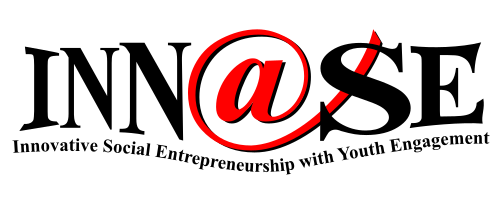
Cocoa360
Cocoa360 is a community-based organization in Ghana that uses proceeds from cocoa farms to run health clinic and tuition-free school for girls. This social enterprise was spearheaded and founded by Shadrack Frimpong of Ghana. Although he traveled abroad to the University of Pennsylvania on full scholarship to obtain a Bachelor’s degree in biology in 2015, his soul and heart always yearned to do something impactful and significant back home that revolved around education and health.
Through cocoa plantations, Cocoa360 transforms farming communities and facilitates access to education and healthcare. It has pioneered the world’s first agro-campus and „Farm-for-Impact” model of health equity; a tuition-free girls’ school and hospital situated amid a cocoa plantation. In exchange of subsidized fees, beneficiaries dedicate a minimum of 3-hours weekly, to work on the non-profit’s 40-acre plantation. The profits from cocoa sales are then used to self-sustain the operations of the school and the hospital. Using an innovative approach to female education and rural empowerment, they employ a financial model that capitalizes on the agricultural and vocational skills found in farming communities.
With this simple and straightforward model, the enterprise was able to connect with cocoa-producing communities to identify their greatest academic and/or medical need(s). Then, it was set to direct the proceeds from the cocoa produced in these communities towards better education and healthcare.
Visit the website: https://www.cocoa360.org/

Kidogo
Kidogo is a social enterprise that improves access to high-quality, affordable early childhood care and education for low-income families in East Africa’s urban slums (Kenya). They use a „hub and spoke” model in which best-practice early childhood centers (the „hubs”) provide childcare and preschool services. The hubs also serve as models for the „spokes,” which are childcare micro-businesses run by local women as part of a social-franchising program.
Kidogo reasoned that it could put women on the road to financial independence by starting their own childcare businesses. And not only would these small childcare franchises benefit the women running them, but in creating safe places for all kids to get care, other mothers could seek work outside of the slum, knowing their children would be safe.
Kidogo’s plan is focused on three key metrics. The first are „hub” centers and child development and readiness to learn. This takes into account each child’s holistic development, including physical, cognitive, psycho-motor, language, and socio-emotional outcomes. The company also monitors micro-franchised „spokes”, or early childhood caregiving environment. Finally, it evaluates program sustainability and scalability using operational and financial metrics.
Visit the website: https://www.kidogo.co/
![]()
SOKO
SOKO is a manufacturing platform and ethical lifestyle brand that brings together artisan communities in the developing world (Kenya) with consumers worldwide. Their innovative supply chain uses mobile technology to connect independent artisan entrepreneurs directly to SOKO and the global marketplace. SOKO has created proprietary supply chain technology that transforms the mobile phone into a powerful business tool. Through their distributed production model, what they call their “virtual factory”, they have created a mobile enabled supply chain that empowers artisans in underserved communities to sustainably improve skills, manage and grow their businesses, and access the global market. SOKO’s technology organizes over 2300 independent, distributed artisans into an efficient and demand-responsive “virtual factory” enabling their artisan workshops to earn 4.8 times more than an average Kenyan workshop. So, unlike centralized factory production, they are using technology to empower human capital, not displace it.
SOKO’s product is handmade from ethically sourced and up-cycled materials and is currently sold in over 64 countries and have over 700 points of distribution ranging from Nordstrom, Marine Layer, Amour Vert, Anthropologie, Goop, Zolando, Reformation, and more. The company is B-Corp certified and endorsed for social impact by the United Nations, USAID, and the World Bank.
Visit the website: https://shopsoko.com
![]()
Cherehani Africa
Cherehani Africa, located in Nairobi (Kenya), leverages mobile based technology to provide credit and distribute personalized financial literacy content to women and adolescent girls who own micro-enterprises.
The company is transforming the microfinance market by leveraging proprietary technology to deploy capital at a 3x efficiency. Its business model is to combine technology with a human approach, providing credit to women micro-entrepreneurs in rural and underserved markets. The model is built on top of a proven micro-savings groups structures, enabling young women to immerse themselves and succeed in the new economy. Cherehani also provides market information and financial education to its customers. The suite of information is disseminated via a proprietary web based platform and augmented by in-person field visits. With over 13,000 customers on its platform, the inherent peer-to-peer pressure among members drives loan repayment, and is key to building a robust business ecosystem of skilled and financially sound micro-enterprises.
Visit the website: https://cherehani.org/
![]()
M-Lesson
M-Lesson is a social enterprise that aims to improve the learning outcomes of 250 million primary school pupils in Kenya and other developing countries. It does it through a low cost mobile assessment platform that measures and shares real time academic performance. Parents subscribe to receive daily assessment questions that are uniquely designed to improve the learning outcomes of their children and at the same time aide parents to understand the academic performance of their children hence making better educational decisions.
Using differentiated instruction and mobile pedagogy, M-Lesson empowers each pupil to be a star on their own. It enables pupils to improve in areas of struggle hence increasing their chances of getting admission to high school, improving their livelihoods as a result of access to basic education, and growing their local economies.
Visit the website: https://m-lesson.com

Nutri’zaza
Nutri’zaza is a social enterprise in Madagascar fighting against children malnutrition.
In Madagascar, nearly one out of every two children are malnourished. The cause: the poor quality of the food they receive, notably in disadvantaged households (inadequate breastfeeding practices, complementary foods that are nutritionally very lacking).
The mission of the company is to produce and distribute fortified local products respecting international standards at a price that is affordable for everyone, in particular a food that is complementary to breast milk: Koba Aina (“flour of life” in Malagasy); and to promote best feeding practices and mother and child hygiene.
The company seeks for the largest distribution of a good quality aliment for infants, and especially among the poorest while sticking to an enterprise-based approach as a financially sustainable business. Nutrizaza has also undertaken a campaign against malnutrition through information campaigns and a watch over the babies’ weight. Nutri’zaza is today demonstrating that it is possible to reconcile social impact in terms of public health and economic profitability. It is possible to provide Malagasy populations with a sustainable solution to malnutrition via a committed private stakeholder, without incurring costs for Malagasy State public finances or depending on international donors over the long term.
Visit the website: https://www.gret.org
